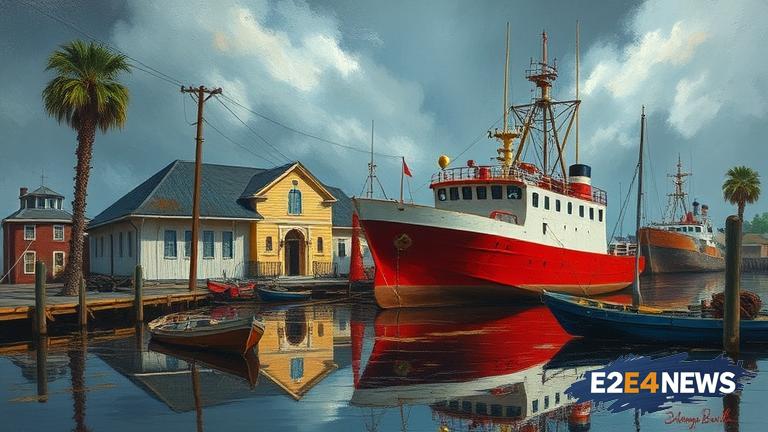Hurricane Katrina, one of the most destructive natural disasters in the history of the United States, made landfall in Louisiana on August 29, 2005. The storm’s catastrophic effects were felt across the Gulf Coast, with New Orleans being one of the hardest-hit cities. Boysie Bollinger, a prominent shipbuilder and businessman, has reflected on the disaster, sharing his personal experiences and observations. Bollinger’s company, Bollinger Shipyards, played a significant role in the rebuilding efforts, providing critical support to the affected communities. The shipbuilder noted that the storm’s impact was unprecedented, with widespread flooding and destruction causing billions of dollars in damages. The city’s levee system, designed to protect against such disasters, failed, leaving thousands of residents stranded and without access to basic necessities. The aftermath of the storm saw a massive influx of relief efforts, with government agencies, non-profit organizations, and private companies like Bollinger Shipyards working together to provide aid and support. Bollinger praised the resilience and determination of the people of New Orleans, who came together to rebuild and restore their city. The shipbuilder also acknowledged the significant challenges faced by the city’s residents, including poverty, lack of access to education and job opportunities, and inadequate infrastructure. Despite these challenges, Bollinger expressed optimism about the city’s future, citing the progress made in rebuilding and revitalizing affected neighborhoods. The shipbuilder also emphasized the importance of investing in infrastructure and disaster preparedness, highlighting the need for a comprehensive and coordinated approach to mitigating the effects of future disasters. Bollinger’s reflections on Hurricane Katrina serve as a reminder of the devastating consequences of natural disasters and the importance of community resilience and determination. The storm’s impact on the city’s economy, environment, and social fabric was profound, with long-lasting effects still being felt today. However, the rebuilding efforts, led by individuals like Bollinger, have helped to revitalize the city, creating new opportunities for growth and development. The shipbuilder’s experiences and insights offer valuable lessons for disaster preparedness and response, highlighting the need for collaboration, innovation, and investment in critical infrastructure. As the city continues to rebuild and recover, Bollinger’s story serves as a testament to the power of human resilience and the importance of community-led initiatives. The rebuilding efforts have also sparked a renewed focus on sustainability and environmental stewardship, with a growing emphasis on green infrastructure and eco-friendly practices. Furthermore, the storm has prompted a re-examination of the city’s social and economic systems, with a growing recognition of the need for greater equity and access to resources. Bollinger’s reflections on Hurricane Katrina offer a nuanced and multifaceted perspective on the disaster, highlighting the complex interplay of factors that contributed to the storm’s impact. The shipbuilder’s experiences also underscore the importance of leadership and vision in the face of adversity, demonstrating the critical role that individuals can play in shaping the response to and recovery from disasters. In conclusion, Boysie Bollinger’s reflections on Hurricane Katrina provide a powerful and thought-provoking account of the disaster and its aftermath, offering valuable insights into the importance of community resilience, disaster preparedness, and sustainable rebuilding practices.
